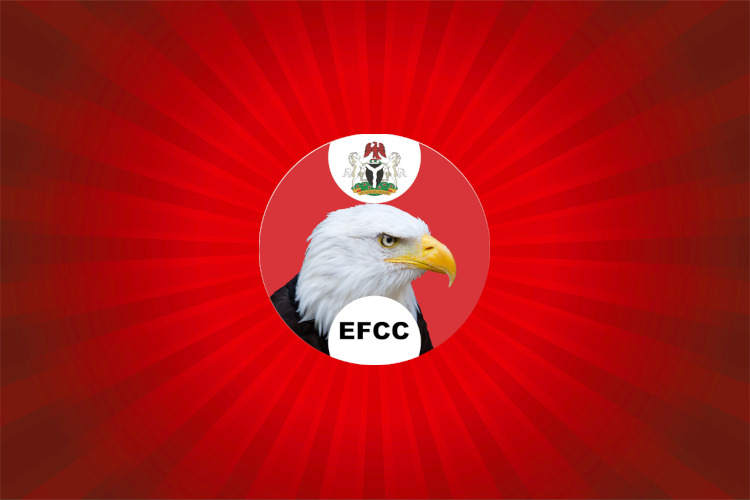Nigeria’s Economic and Financial Crimes Commission (EFCC) was established in 2003 with a noble mandate: to combat corruption, financial crimes, and money laundering. Under its first chairman, Nuhu Ribadu, the agency earned international accolades for its bold prosecutions of high-profile politicians and fraudsters. But today, the EFCC has degenerated into a grotesque parody of its original mission—a rogue institution that routinely violates human rights, disregards the rule of law, and operates as an instrument of political persecution rather than justice.
The EFCC’s transformation into criminality is not accidental; it is systemic. Under successive administrations, the agency has been weaponized to target political opponents, intimidate critics, and extort innocent citizens. Its operatives routinely conduct illegal raids, make arbitrary arrests, and detain suspects indefinitely without trial. The infamous midnight invasions of homes and hotels—often without warrants—have become a hallmark of the EFCC’s modus operandi.
In 2024 alone, multiple reports have emerged of EFCC operatives brutalizing young Nigerians in the name of fighting cybercrime. Innocent citizens have been arrested in nightclubs, gaming centers, and even on the streets simply for owning laptops or dressing in a manner the EFCC deems “suspicious.” Many of these victims are detained for weeks or months without charge, subjected to torture, and forced to pay bribes for their freedom.
The EFCC’s so-called anti-corruption crusade is a sham. While petty fraudsters and low-level offenders face the full wrath of the law, politically connected individuals enjoy impunity. Under former President Muhammadu Buhari, the EFCC became notorious for targeting opposition figures while turning a blind eye to corrupt allies. Politicians accused of looting billions of naira walk free, while ordinary Nigerians are paraded on national television for minor offenses.
The case of former Kogi State Governor Yahaya Bello is a glaring example. Despite multiple corruption allegations, the EFCC’s handling of his prosecution has been marred by procedural irregularities and political interference. Meanwhile, whistleblowers and anti-corruption activists who expose government fraud often find themselves harassed by the same agency meant to protect them.
Beyond its lawlessness, the EFCC has institutionalized extortion as a revenue stream. Many detainees report being forced to pay exorbitant sums for their release, even when no evidence exists against them. Businesses are routinely raided under the pretext of investigating fraud, only for owners to be coerced into paying bribes to avoid prosecution.
In 2023, a young entrepreneur in Lagos recounted how EFCC operatives stormed his office, confiscated his devices, and demanded ₦5 million to avoid arrest—despite having no proof of any crime. Such incidents are not isolated; they are part of a well-documented pattern of abuse.
Nigeria’s judiciary has repeatedly condemned the EFCC’s disregard for legal procedures. Courts have dismissed numerous EFCC cases due to lack of evidence, illegal detention, and procedural violations. Yet, the agency continues to act with impunity, secure in the knowledge that no one will hold it accountable.
The EFCC’s media trials—where suspects are publicly vilified before any court verdict—further erode the presumption of innocence. By the time cases collapse in court, the accused have already suffered reputational and financial ruin.
The EFCC, in its current form, is beyond redemption. If Nigeria is serious about fighting corruption, the following steps must be taken:
Judicial Oversight: All EFCC operations must require judicial approval. No more illegal raids or warrantless arrests.
Prosecution of Rogue Operatives: EFCC officials who engage in torture, extortion, or unlawful detention must face criminal charges.
Depoliticization: The agency must be insulated from executive control to prevent its use as a political weapon.
Civilian Review Board: An independent body should investigate complaints against the EFCC and sanction misconducts.
Whistleblower Protection: Genuine anti-corruption activists must be shielded from retaliation.
The EFCC was meant to be Nigeria’s shield against corruption. Instead, it has become a predator—an organized criminal syndicate masquerading as a law enforcement agency. Until the government takes decisive action to reform or dismantle this rogue institution, the EFCC will remain a symbol of Nigeria’s failed justice system and the hypocrisy of its anti-corruption facade.
The time for silence is over. Nigerians must demand accountability before the EFCC’s criminality consumes what remains of the rule of law.
READ ALSO: Elevating the EFCC to world-class standards



